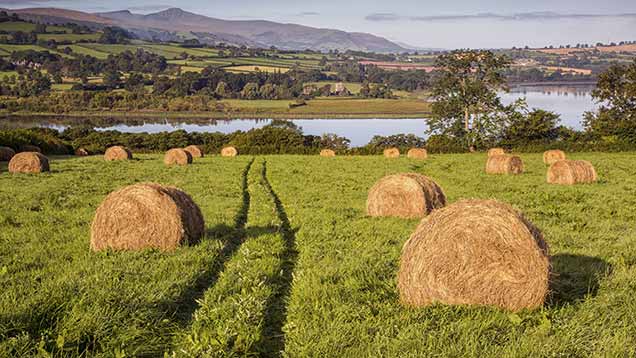Farmers and suppliers told to unite for best Brexit deal
 © FLPA / Allen Lloyd/REX
© FLPA / Allen Lloyd/REX Farmers and agricultural suppliers have been warned to set aside any differences if they are to secure the best Brexit deal for the sector.
A united front is vital if government ministers are to heed the needs of the farming sector as the UK leaves the European Union, industry leaders have been told.
The warning was issued by David Caffall, chief executive of the Agricultural Industries Confederation, the umbrella organisation for the agricultural supply chain.
“Unless the whole industry works together, we won’t even feature in anyone’s planning,” he said.
See also: NFU calls for ‘single voice’ on Brexit
Mr Caffall was speaking to delegates at Agribusiness 2017 – the annual conference for agricultural suppliers, which aims to set the agenda for the year ahead.
More than 350 representatives from across the agricultural supply chain attended the event, held at the Peterborough Arena on Wednesday (23 November).
Delegates included fertiliser and agrochemical manufacturers, seed companies, scientific researchers, grain and feed merchants, agritech innovators and farm business advisers.
‘Seismic changes’
Brexit could result in seismic changes for UK agriculture – including in areas such as trade, regulation, employment and farm support, they were told.
Grain prices have been buoyed by the fall in the value of sterling since the UK voted to leave the EU on 23 June. But at the same time, farm input prices have started to rise.
Mr Caffall said Brexit would shape the fortunes of the agricultural industry – and the country in general – for a generation and maybe more.
“It is therefore beholden upon us to give it our very best attention.”
Agriculture not a priority
However, in what he described as a “brutal” assessment, Mr Caffall warned that agriculture was unlikely to be a priority for the government.
Over the past 70 years, agriculture had gone from an “insignificant” contributor to the national economy in 1948 to being “practically obliterated” by 2013.
During that time, it had been left behind by the contribution of the City of London, financial services, the automotive sector and aviation.
Mr Caffall denied he was being overly pessimistic. “That is not defeatist talk,” he said.
“On the contrary – it is just the sort of challenge we relish.”
An AIC strategy group was due to meet at the end of November to consider what the industry had to do to “win the day,” said Mr Caffall.
‘Unified voice’
“Recognising the need for a unified voice, we are working on the format of a loose Brexit coalition with other like-minded organisations.”
These organisations were involved in the provision of products, knowledge and technology to farmers, said Mr Caffall.
However, the AIC was mindful that the coalition’s voice and credibility would be strengthened by the addition of R&D organisations – and the wider food and farming industry.
Taken together, agriculture and food was the UK’s biggest single industry, employing more than one in eight people and worth in excess of £100bn annually to the national economy.
Mr Caffall said “like-minded bodies coalescing into a single powerful player” would look to hold talks with the government departments dealing directly with Brexit, not just Defra.
This included the Department for Exiting the European Union, the Department for International Trade and also, perhaps, the Treasury.
